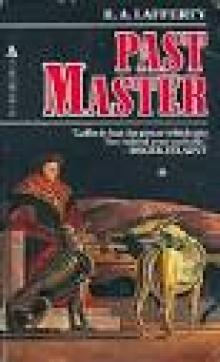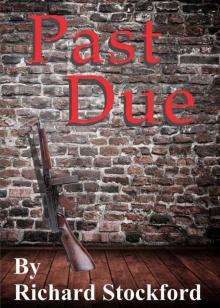- Home
- Richard Stockford
Past Master
Past Master Read online
Past Master
Det. Thomas Clipper Mysteries - Book 3
Richard Stockford
Contents
Past Master
Books in This Series
Prologue
Chapter One
Chapter Two
Chapter Three
Chapter Four
Chapter Five
Chapter Six
Chapter Seven
Chapter Eight
Chapter Nine
Chapter Ten
Chapter Eleven
Chapter Twelve
Chapter Thirteen
Chapter Fourteen
Chapter Fifteen
Chapter Sixteen
Chapter Seventeen
Chapter Eighteen
Chapter Nineteen
Chapter Twenty
Chapter Twenty-One
Chapter Twenty-Two
Chapter Twenty-Three
Chapter Twenty-Four
Chapter Twenty-Five
Chapter Twenty-Six
Chapter Twenty-Seven
Chapter Twenty-Eight
Chapter Twenty-Nine
Chapter Thirty
Chapter Thirty-One
Chapter Thirty-Two
Chapter Thirty-Three
Chapter Thirty-Four
Chapter Thirty-Five
Chapter Thirty-Six
Chapter Thirty-Seven
Epilogue
Get a Free Clipper Story!
About the Author
Copyright 2020 Richard Stockford.
All rights reserved.
v200330
Published by On the Beat Books
Cover design by Shayne Rutherford at Wicked Good Book Covers
Neither this book nor any portion thereof may be reproduced or used in any manner whatsoever without the express written permission of the publisher, except for the use of brief quotations in a book review.
Although set in an altered version of the author’s favorite town, this book is purely a work of fiction. The characters and events described herein exist only in the author’s mind and are not intended to represent real people, places, or events.
Print ISBN: 978-1951328016
Created with Vellum
From a place you cannot see
comes a sound you will not hear.
Fear stalks the small city of Bangor, Maine when a ruthless assassin begins claiming victims in long-range sniping attacks.
Lieutenant Thomas Clipper and his crew are already dealing with the baffling disappearance of a beautiful young woman and the savage death of another; as the body count rises, the looming specter of a possible serial killer terrorizes the city. But now, as the investigations expand, a seemingly unconnected series of sniper attacks weave a perplexing web of vengeance and retribution, and Clipper begins to wonder if there’s a connection after all.
In his search for answers, Clipper must seek a master sniper to guide him through the dark science of death from afar. But he finds much more than he bargained for, and the mystery only deepens when he realizes that history seems to be repeating itself—again.
Books in This Series
Past Due
Past Perfect
Past Master
Prologue
September 2019
Washington County Superior Court Judge Charlene Thurlow sighed deeply as she took the bench in the packed courtroom. Every seat in the stately venue was filled, and the air vibrated in hushed expectation of her verdict.
The trial had been long and tedious, with the state trying to bolster a paucity of real facts with a flood of circumstantial evidence in a murder case that was one of the goriest in memory. A pretty young girl had been raped and tortured, ultimately beaten to death, behind the small-town high school, and an extended investigation had led police to a local man with a long record of sexual offenses ranging from public exposure to unlawful sexual contact.
There was very little in the way of solid evidence, and the smart young defense attorney had been successful in getting the only real physical evidence—some fibers found on the victim that could be potentially be tied to the defendant—suppressed due to a mistake in the chain of evidence. It was a small thing; the evidence was removed from the evidence room, transported to the lab, and returned the next day, all without being properly signed out.
Or perhaps it had been signed out, as the evidence technician testified, but the paper trail necessary to prove an unbroken trail of custody of evidence from the crime scene to the courtroom could not be produced, and that simple lack of a signed form dealt the state's case a potentially fatal blow. Had the mistake been discovered earlier, before the swearing of the first witness, the prosecutor might have chosen to dismiss the charges and regroup for a second indictment. But the motion to suppress came near the end of the state's case, and there was the question of double jeopardy; the state had no choice but to push ahead. And when it was their turn, the defense produced their own barrage of circumstantial evidence, alibis, evasions and ambiguities.
In the end, Charlene had little doubt that a jury would have found the defendant guilty just because of who he was, but there was no jury. The decision was hers alone, and she also had little doubt that he was guilty.
But she had some, and in the bright light of her devotion to the law, she knew that it met the harsh standard of reasonableness. Sick at heart, Judge Charlene Thurlow took a sip of water and prepared to address the court.
Gerard Beaudreau was a giant. He stood six feet six inches tall, and at age thirty-six he still carried the slab muscles and strong frame of a working farmer under a layer of hard fat that belied his enormous strength. Round-faced, with fine blond hair and ingenuous blue eyes, he was also one of those people who always lived happily in the moment, no matter how perilous the moment might be. Right now, at the penultimate moment of the most serious trial in his trial-littered history, he was smiling pleasantly and listening with one ear—and with very little understanding—as the pretty lady judge droned on and on.
Gerard was smiling because experience had taught him that people liked him better when he smiled, and also because he was imagining how the slim, blond judge would look without her form-concealing robe. He had just a moment to vaguely register a shocked silence in the courtroom when she stopped talking, then the room exploded in sound and his grinning attorney was pounding him on the back and hauling him to his feet as the judge stood and abruptly left the bench.
Twenty minutes later, accused murderer Gerard Beaudreau walked smilingly out of the courthouse, a free man.
As Gerard Beaudreau was making his way down the courthouse steps to freedom, Tommy Henderson was pulling into the old steam plant parking lot across from the University of Maine campus in Orono, ninety-two miles away. He slowly circled the perimeter of the large lot, looking for cops. He’d been making weekly meets here for the past month and it was past time to find a new location. At just twenty, Tommy was fast becoming a major connection on the campus drug scene and he prided himself on being careful and professional in his work, dealing only with a small, select clientele and changing locations frequently.
Tommy spotted nothing to raise his hackles, so he backed into a space in the last row, cranked the stereo a little and sat back to wait for his first customers. Within fifteen minutes, having unloaded twelve grams of coke and a half dozen 8-balls to a handful of regulars, he was eighteen hundred dollars to the good. In return for their money, each customer had received a code number, which they would take to a teenage girl in a different parking lot at the other end of the campus. Based on a cell phone call from Tommy, she would know what product to give to each customer. Tommy had taken a couple of minor falls before devising this plan, but although he figured he wa
s still on the cops’ radar, he was confident they couldn’t touch him.
With the last customer trudging back up the hill towards campus and his workday over, Tommy slid out of his car to stretch for a moment in the midday sun. He lit a cigarette and stepped to the edge of the lot, idly watching the river and wondering if maybe he should get a boat.
Three hundred and ninety-two yards to the northwest, a Winchester model 70 Classic, sporting a twenty-two-inch stainless barrel with a Silencerco Chimera suppressor that added an ominous seven inches to the muzzle, sat framed in the open passenger-side front window of a small, nondescript car. The matte black Bushnell Elite Tactical 6-24x50 scope crouching atop the receiver and the tactical composite stock gave mute testimony to the weapon’s sole purpose…as did the open box of match-grade .308 ammunition on the seat beside the vehicle’s lone occupant.
The man behind the rifle was still, his features cold and determined with the need that drove him. There was nothing in his face to indicate the small flicker of guilt and remorse entrapped and overpowered by that raging need.
The 168-grain bullet that took Tommy just over the bridge of the nose blew out the back of his head and blasted through the rusted rear bumper of a ’99 Chevy van parked at the front of the lot, finally lodging itself in the vehicle’s frame. The quality of the suppressor was such that, were it not for the spray of blood and brain matter, an onlooker might have assumed that Tommy had simply fainted. His corpse dropped straight down off the edge of the lot and remained unnoticed in the rocks at the river edge until it was spotted by a late season kayaker the following morning.
Chapter One
It was one of those late fall days in Maine when the wind is still and the thin sunlight lends a surprising warmth to air perfumed with the scent of burning leaves and drying cornstalks. Desiccated leaves and random patches of hoarfrost and soil, puffed and pregnant with ice crystals, crunched underfoot as two men walked slowly down the faint vestiges of an ancient logging road.
On later visits, they would drive to their destination, but for this first trip of the year they always walked, shrugging off the town’s cloying atmosphere, scouting the condition of the trail, and enjoying the quiet and solitude of the deep woods.
It was the next-to-last Saturday in October, nine days before the November 2nd opening day of deer season, and the two were engaged in the first act of a ritual they had practiced for an unbroken string of forty-four years: the annual opening of hunting camp.
In the lead, Galen Woodman walked with the straight-ahead, no-nonsense gait of the pre-eminent heart surgeon he had once been. Above average in height, with heavy shoulders and a thick, muscular torso, Woodman resembled a determined black bear headed for a honey tree. Mostly retired now at age ninety-one, he still maintained a heavy consultation schedule and was blessed with the energy and constitution of a man thirty years his junior.
Eighty-nine-year-old Douglas Holland glided silently in Woodman’s wake. Although much slighter in stature, and slender almost to the point of emaciation, he kept up with the larger man’s pace with no apparent effort. Both men wore old leather boots, corduroy pants, and red-and-black-checked woolen hunting shirts, and carried small packs high on their shoulders. Holland’s shirt bulged slightly over the holstered Smith & Wesson Model 19 combat magnum at his waist.
The two men, both Maine natives, had first met on February 19, 1945, in a bloody aid station on Corregidor Island’s Black Beach. Holland had been a seventeen-year-old infantryman with the 503rd Parachute Regimental Combat Team and a survivor of the banzai attack that had overrun his squad’s position during the night, and Woodman, only two years older, an exhausted 34th Infantry Regiment medic who had been patching up an endless tide of wounded American soldiers for nearly forty straight hours.
In the imaginary shade of a tattered scrap of filthy canvas, Woodman had torn the blood-soaked field dressing off Holland’s upper chest and left shoulder, and mechanically dusted the ragged wound beneath with fresh sulfa powder before applying a new bandage. He was turning to call for a stretcher team when he spotted the brown wooden handle of a type 30 Japanese bayonet protruding from under Holland’s leg. “Sorry, soldier,” he’d muttered wearily, reaching for the knife, already looking for the next casualty, “no souvenirs.”
The hand that grabbed and held his wrist was like iron. “Bullshit. I earned this thing, and it’s going home with me.”
Jolted out of his exhausted routine by the man’s vehemence, Woodman sat back on his heels and eyed the smaller soldier. “And where’s that,” he said distractedly, unconsciously prolonging the tiny moment of rest.
The last thing he expected to hear was the name of the town in Maine next to his own.
“Look,” he’d said, after they’d exchanged names, “they’ll just take it away from you on the ship. Let me have it, and I’ll get it back to you. I promise.”
Holland made his decision and closed his eyes as the stretcher bearers moved in to take him away. “I’ll see you at the Bangor House when this thing’s over. Don’t lose my bayonet, and don’t get killed.”
Galen Woodman made good on his promise on September 30th, 1945, in the historic Bangor House lounge, turning over the bayonet and accepting a drink in return. Despite their separate paths—Holland remaining in the Army and Woodman off to college and then medical school—the two men had forged an enduring friendship in the years that followed.
And now, more than seventy years later, as they came to the clearing at the end of the road, both privately wondered how many hunting seasons they had left.
To the casual eye, the hunting camp, crouched amid stunted cedars beneath a stand of towering pines, might have been no more than a curious collection of wood and debris. Its once square log walls, still bearing strips of fibrous bark, had slumped tiredly back to nature’s design, and the lines of its low shed roof were blurred with moss and small tree branches reaching like skeletal fingers into the sky around a rusty stovepipe protruding drunkenly from a back corner.
A slightly more critical eye might have noticed the stout wooden shutters covering the two windows on either side of the solid front door, as well as the expensive padlock securing said door to its massive frame.
Doug Holland’s eyes, more critical than most, narrowed as he spotted the slight skew to the left-hand shutter, and his right hand slipped beneath his shirt to the worn grips of his revolver. “Hold on, Gale,” he said quietly. “Someone’s been in there.”
With a familiarity bred of decades as hunting partners, the two men circled the small building noiselessly, checking it and the soft ground nearby until they were sure that they were alone. Only then did Holland pull the damaged shutter off the building and peer over his drawn pistol through the broken window behind. “Nobody there now,” he said after a moment.
Woodman keyed the lock and pulled the door open. They were a couple of steps inside the sixteen-by-twenty-foot single room when the smell hit them.
Hunting camps have a smell all their own: wood smoke and damp wool, bacon grease and stale sweat, all underlaid with the lingering fragrance of Hoppe’s No. 9 and the subliminal aromas of testosterone and adrenaline. Preconditioned as they were to expect the familiar redolence of the camp, it took both men a second to change gears… but only a second. Suddenly, their minds were cast back to the charnel house that had been Corregidor, and they were struggling not to retch at the stench of rotting flesh.
Chapter Two
Of the myriad foul smells he’d encountered in twelve years of police work, Lieutenant Thomas Clipper had learned to tolerate most all but this. Oily sweat oozed down Eddie Frank’s fat face, and the smell of unwashed flesh and stale beer combined with the stink of vomit, cheap aftershave, and raw fear flowed like a poison cloud from his sodden collar, seeming to drive the oxygen from the small interview room. Patrol had found Eddie, a twenty-two-year-old unemployed dishwasher and part-time thief, at sun-up, passed out in a puddle of vomit thirty feet from the smashed window o
f a burglarized pharmacy. He’d been surrounded by dozens of containers of deodorant and inexpensive men’s toiletries.
“Come on, Eddie. Talk to me.” Unconsciously holding his breath, Clipper leaned in close. “We’ve got you on the security camera, and your fingerprints are all over the place. Help yourself out here, and just tell me what happened.”
Eddie lifted a tearful face. “I didn’t mean to, Mister Clipper,” he wailed. “I was just leanin’ on the window and it broke…and…and I guess I just grabbed some stuff.”
“What were you going to do with all that junk?”
“I don’t know… I wanted to get cleaned up, and all… and…I’m sorry…” Eddie’s voice whined to a stop.
Sighing, Clipper leaned back and turned off the recorder. “Eddie, we’re going to take you down to the County Jail, and you’ll see the judge on Monday. You can call someone for bail, but if you get out and your sister gets her hands on you, she’ll kick your ass, so you might want to just cool it between now and then.”

 Past Perfect
Past Perfect Bystander in Time
Bystander in Time Past Master
Past Master Past Due
Past Due